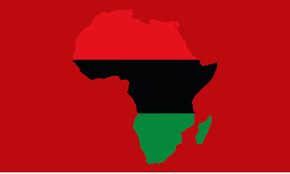Pan-Africanism is a political and social movement that seeks to promote the unity and solidarity of people of African descent, both within Africa and throughout the world. It emerged in the late 19th and early 20th centuries, during a time of intense colonialism and exploitation of African resources and labor by European powers. Since then, it has had a profound impact on the development of African nations, the struggle for civil rights and racial equality, and global politics and culture.
History of Pan-Africanism
The origins of Pan-Africanism can be traced back to the late 19th century, when the first Pan-African Conference was held in London in 1900. The conference brought together leaders from across the African diaspora to discuss issues facing people of African descent, such as racism, colonialism, and the need for self-determination. The conference was followed by a series of other conferences in different parts of the world, and helped to lay the groundwork for the Pan-African movement.
In the early 20th century, Pan-Africanism became a more formal political movement, with the founding of organizations such as the Universal Negro Improvement Association and the African National Congress. These organizations sought to promote African unity and solidarity, and to challenge colonialism and racial discrimination. They also advocated for the liberation of African nations from foreign domination, and for the development of an African identity and consciousness.
Pan-Africanism in the 20th Century
Pan-Africanism played a major role in the struggle for independence in many African nations in the mid-20th century. Leaders such as Kwame Nkrumah of Ghana, Jomo Kenyatta of Kenya, and Julius Nyerere of Tanzania were all inspired by the ideals of Pan-Africanism, and sought to create strong, independent nations that could serve as models for the rest of the continent.
Pan-Africanism also influenced the civil rights movement in the United States and other parts of the Americas, inspiring figures such as Malcolm X and Martin Luther King Jr. to embrace a global perspective on racial justice and equality. In addition, Pan-Africanism was a major force in the anti-apartheid movement in South Africa, with leaders such as Nelson Mandela drawing on its principles of unity and solidarity to inspire resistance to apartheid and calls for a free, democratic South Africa.
Pan-Africanism Today
Today, Pan-Africanism continues to be a powerful force in global politics and culture. It has inspired the development of organizations such as the African Union, which seeks to promote peace, prosperity, and unity among African nations. It has also influenced the rise of African cultural movements, such as Afrofuturism, which use science fiction and other genres to explore the future of African societies and cultures.
Despite the many challenges facing Africa and the African diaspora today, the ideals of Pan-Africanism remain as relevant as ever. By promoting unity, solidarity, and self-determination, Pan-Africanism offers a vision of a better future for all people of African descent, one that is based on shared values, shared struggles, and a shared commitment to a brighter tomorrow.
